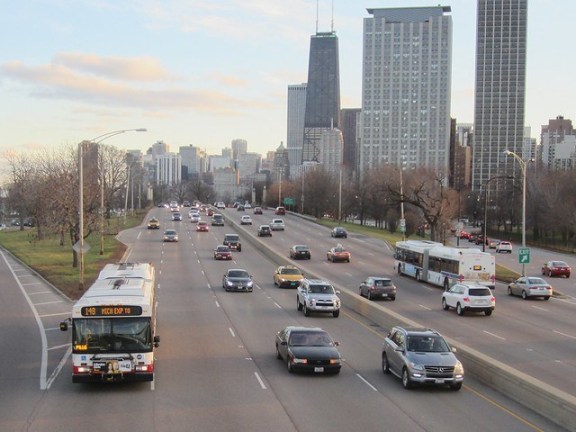Contact the Redefine the Drive team to let them know you want bus-only lanes, with no widening of Lake Shore Drive, back on the table.
In an incredibly retrograde decision, the Illinois Department of Transportation and other officials have eliminated the possibility of making the reconstruction of North Lake Shore Drive less car-centric and more equitable by converting car lanes to transit-only corridors without widening the roadway. This shortsighted choice is a major mistake, and transportation advocates are calling on state and local leaders to reverse it.
This massive misstep was revealed last Thursday when IDOT held an online meeting for the 11th gathering of task forces for the North Lake Shore Drive reconstruction project. During the event (view the presentation here), IDOT announced that possible configurations for the rebuilt highway have been narrowed down to three options, none of which involve creating bus-only lanes within the roadway's existing eight-lane footprint.
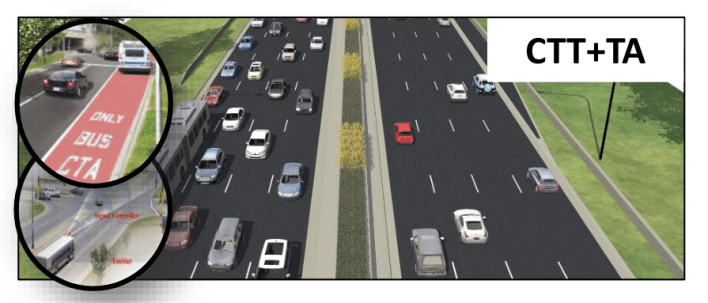
The Context Tailored Treatment With Transit Advantages scenario involves minor tweaks to slightly improve transit service, including queue jump lanes and bus-priority traffic signals. But it includes no major changes to speed up buses and improve reliability.
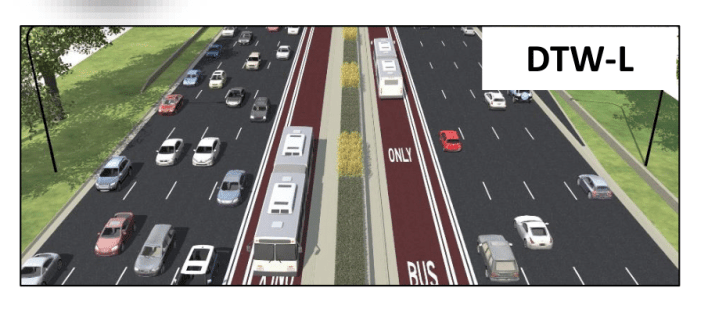
The Dedicated Transitway-Left alternative does include bus-only lanes, but under deal-breaking circumstances. In an attempt to avoid inconveniencing motorists, eight lanes would still be available to drivers, while the already huge highway would be widened to ten lanes to make room for the bus lanes. That would be hugely expensive, would create an even larger barrier between Chicagoans and the lakefront, and it would gobble up precious parkland. In short, this option is a total non-starter.
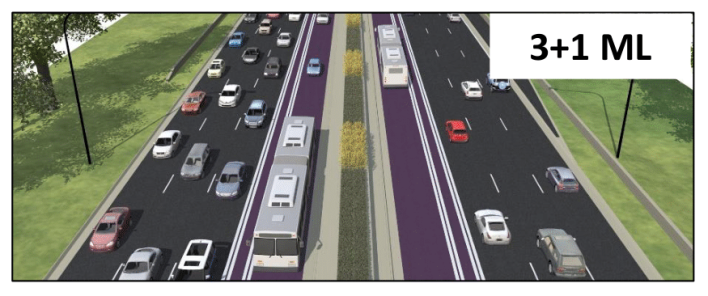
The 3+1 Managed Lanes scenario would keep the existing highway footprint while creating new lanes that would be shared by buses and motorists who pay a toll, which would increase as more vehicles enter the lane in an attempt to prevent traffic jams, i.e. congestion pricing. This may seem like a reasonable approach to the casual observer, but it has several drawbacks. Since transit riders wouldn't get their own lanes, they wouldn't get the same speed and reliability benefits as dedicated bus lanes.
The congestion priced tolls could be tricky to implement, and there could be political backlash if steep fees are needed to keep traffic flowing, such the $40 tolls experienced on a highway in the Washington D.C. area after demand-based pricing was introduced. Allowing drivers to pay a premium in order to get around faster -- at the expense of transit riders -- also raises equity issues.
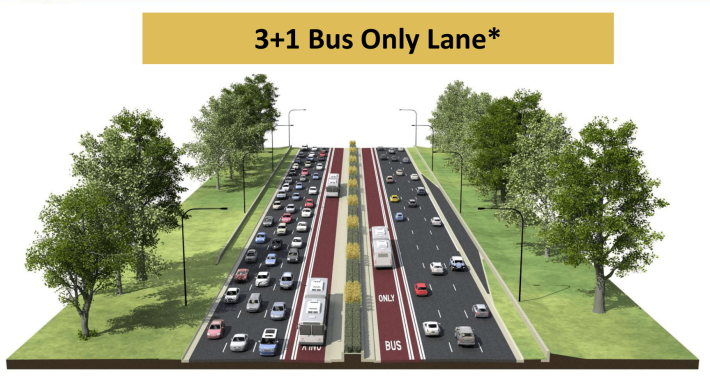
The alternative that was conspicuous by its absence is The 3+1 Bus Only option, which would have given bus passengers the dedicated lanes, speed and reliability they deserve. But that option was left on the cutting room floor because it was projected to slightly slow down private vehicle traffic in the remaining six lanes, and the needs of transit riders and motorists were given equal weight in the final decision.
That may appear to be a fair approach, but in reality space-efficient and environmentally friendly transportation modes should be prioritized over road-clogging, smog-creating ones. Besides, if we made the bus a faster, more appealing option, some drivers would switch to transit, so the impact on the remaining car trips would likely be less than projected.
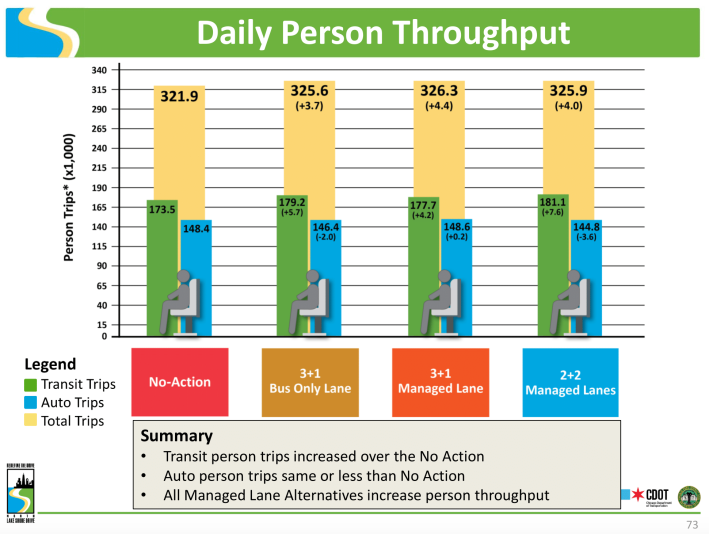
It's difficult not to be discouraged by this outcome, which suggests that IDOT never really seriously considered converting existing travel lanes to bus-only lanes. However, that doesn't mean that an efficient, equitable LSD remix is a lost cause, but rather that we're going to have to fight harder to achieve that goal.
"We are opposed to the apparent decision to remove the best option for improving transit along North Lake Shore Drive from consideration by the team leading the reconstruction project," said Active Transportation Alliance advocacy manager Jim Merrell in a statement. "This effort is a once in a lifetime opportunity to create a healthy, sustainable, and equitable transportation corridor along the North Lakefront."
Merrell noted that in 2018, Active Trans led a coalition of ten business and civic groups calling for dedicated space for transit. "Support for a robust, transit-centered alternative is clear. Removing this option before the public gets a true opportunity to evaluate it undermines the public interest and undermines the goals of improving peoples' mobility and health while addressing climate change." He said Active Trans will be working with its members, supporters, and community partners to encourage Governor J.B. Pritzker, Mayor Lori Lightfoot, IDOT, the Chicago Department of Transportation, and the project team to reverse this bad decision.
Decision-makers need to hear that people want bus-only lanes and are willing to reallocate existing car space to make that a reality. The next public meeting will take place later this summer. We'll let you know when it's scheduled, but in the meantime, you can contact the Redefine the Drive team to let them know they made the wrong call.
